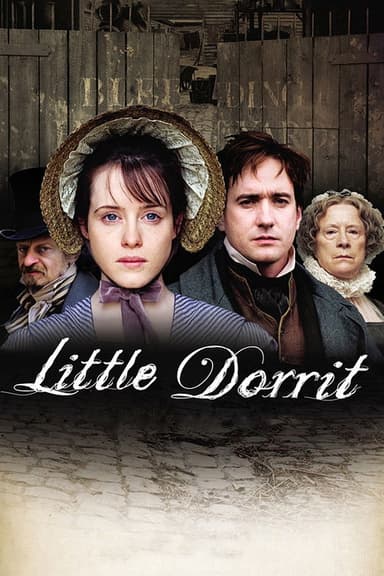
Oliver Twist
2007 • Drama • NR
When 9-year-old orphan Oliver Twist dares to ask his cruel taskmaster, Mr. Bumble, for a second serving of gruel, he's hired out as an apprentice. Escaping that dismal fate, young Oliver falls in with the street urchin known as the Artful Dodger and his criminal mentor, Fagin. When kindly Mr. Brownlow takes Oliver in, Fagin's evil henchman Bill Sikes plots to kidnap the boy.
Why you should read the novel
Reading 'Oliver Twist' offers a profoundly immersive experience that no adaptation can fully replicate. Charles Dickens’ masterful prose draws you intimately into the lives and struggles of his unforgettable characters. Through Dickens' vivid descriptions and biting social commentary, the streets of Victorian London come alive, stirring both empathy and moral reflection in the reader.
The novel’s intricate plotlines and satirical depiction of society provide layers of nuance often lost in condensed screen versions. By reading the book, you gain a deeper understanding of Dickens' critique of institutional cruelty and the resilience of the human spirit amidst hardship. The language itself is an adventure, showcasing Dickens’ wit, irony, and keen psychological insight.
Engaging directly with the source material allows readers to interpret scenes and characters for themselves, rather than receiving a director’s or actor’s interpretation. The book rewards careful attention and offers a richer appreciation for Dickens’ lasting contribution to classic literature and social conscience, making it an essential read beyond any adaptation.
Adaptation differences
The 2007 television adaptation of 'Oliver Twist' introduces several changes to streamline the story for a modern audience and fit it into a concise mini-series format. This inevitably leads to the simplification of certain subplots and the removal or condensation of minor characters who play more prominent roles in the novel. Consequently, the intricate web of social critique and satire found in Dickens’ writing is, at times, subdued in the adaptation.
One prominent difference lies in the characterization and portrayal of key figures such as Fagin and Bill Sikes. The show often highlights their menacing traits for dramatic effect, which can overshadow Dickens’ more nuanced depiction that leaves space for ambiguity and complexity in their motivations. The depiction of Oliver himself is sometimes adjusted to evoke more direct sympathy, whereas in the book, his passivity and innocence are more subtly conveyed.
Furthermore, certain plot points and character arcs are altered or accelerated for pacing. Relationships, such as that between Nancy and Sikes, might be heightened emotionally or simplified for television audiences, losing some of the textured development Dickens affords them in the novel. Scenes involving social institutions like workhouses and the legal system are sometimes depicted with less depth, missing the pointed social criticism Dickens intended.
Finally, the adaptation may update the tone, visualizing Dickens’ darkness for modern sensibilities with grittier imagery and atmosphere. While this can make the narrative more immediate and visceral, it may also overshadow Dickens’ use of irony, humor, and complex narrative voice. As a result, the adaptation delivers a powerful story, but it cannot fully encapsulate the multi-layered brilliance and social insight of the original text.
Oliver Twist inspired from
Oliver Twist
by Charles Dickens





